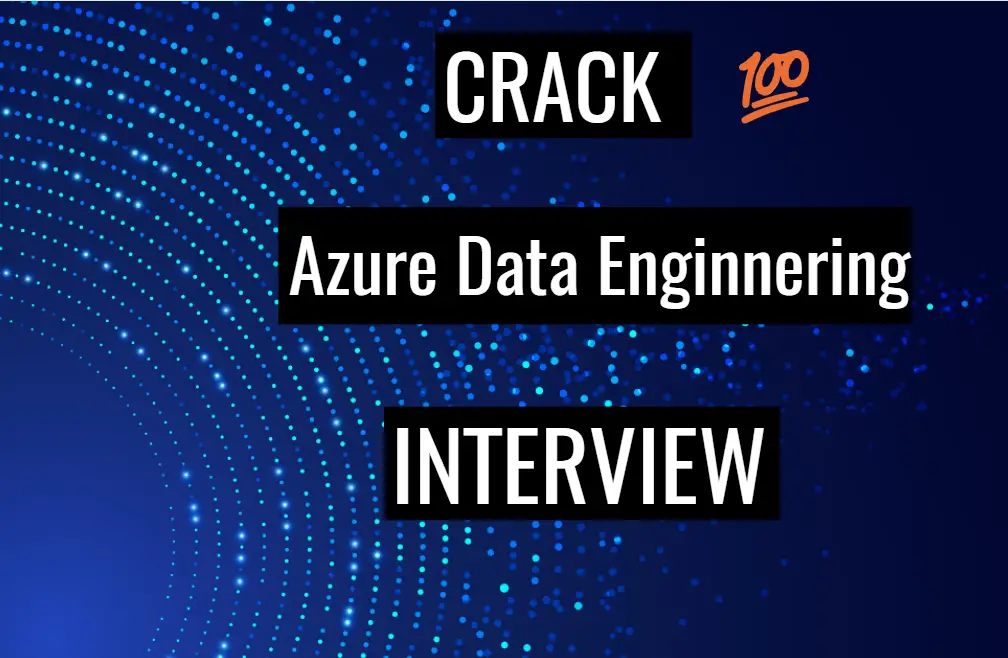In this Azure Developer and cloud engineer series, I am going to share the Azure app service most frequently asked interview question for freshers and experienced professionals up to 2,3,4,5,6,7,8,9,10+ years. Azure App Service and Azure Web apps are mostly used service for any desktop, web, mobile, REST API, application developer. In these set of questions focus would be on real time scenario based questions for Azure App Service, Azure app service interview questions for freshers, azure web app questions for experienced professionals, interview questions for azure web app developers, and interview questions for azure data architects.
What is Azure App Service?
Azure App Service is the service by Azure for hosting the web application, mobile application, REST API, or any backed code base. This service gives you the freedom to choose any programming language for your application like JAVA, python, .net, or any other.
App Service also provides extra features like security, load balancing, autoscaling, and automated management. You can also take advantage of its DevOps capabilities, such as continuous deployment from Azure DevOps, GitHub, Docker Hub, and other sources, package management, staging environments.
Get Crack Azure Data Engineer Interview Course
– 125+ Interview questions
– 8 hrs long Pre- recorded video course
– Basic Interview Questions with video explanation
– Tough Interview Questions with video explanation
– Scenario based real world Questions with video explanation
– Practical/Machine/Written Test Interview Q&A
– Azure Architect Level Interview Questions
– Cheat sheets
– Life time access
– Continuous New Question Additions
Here is the link to get Azure Data Engineer prep Course
Assume that you are working as the Azure developer in the project team of Azurelib.com. You have been asked to share the reason why you want to deploy the newly developed application on the Azure app service. What would be your argument to support this?
I would support Azure app service usage due to the following reasons:
- It supports a large of programming languages ranging from JAVA to .NET to python. You can schedule the batch job written in the scripting language as well.
- It supports both Windows and Linux based applications.
- As Microsoft Azure manages the infrastructure hence you don’t need to worry about infrastructure management.
- Scaling up and down is a common feature with most cloud services. Hence you can leverage that as well here.
- Dedicated tools in Visual Studio and Visual Studio Code streamline the work of creating, deploying, and debugging.
Get Crack Azure Data Engineer Interview Course
– 125+ Interview questions
– 8 hrs long Pre- recorded video course
– Basic Interview Questions with video explanation
– Tough Interview Questions with video explanation
– Scenario based real world Questions with video explanation
– Practical/Machine/Written Test Interview Q&A
– Azure Architect Level Interview Questions
– Cheat sheets
– Life time access
– Continuous New Question Additions
Here is the link to get Azure Data Engineer prep Course
What is Azure App Service Plan?
Azure App Service (Web Apps, API Apps, or Mobile Apps), runs inside the App Service plan. It defines how many and what kind of compute resources will be available for a web app to run. One or more apps can be configured to run on the same computing resources i.e. within the same app service plan.
The location of the compute resource will be in line with the region in which you have created an App Service plan. For example, if your app service plan is created in the EastUS region then compute resources will be allocated in that region. Lis of the parameters which you will select in general while creating the app service plan are as follows:
- Operating System (Windows, Linux)
- Region (West US, East US, etc.)
- Number of VM instances
- Size of VM instances (Small, Medium, Large)
- Pricing tier (Free, Shared, Basic, Standard, Premium, PremiumV2, PremiumV3, Isolated)
Assume that you have been working as Azure Administrator for Azurelib.com. You have been asked to choose the app service plan tier for the newly developed web app which has a very low number of users and doesn’t contain any critical or confidential information at all. Which Pricing tier you will choose and why?
I will choose the Free or shared pricing tier. The reason is that the application will be going to have very little traffic hence no scaling is needed. Also, it doesn’t contain critical information about the organization hence it would be safe to deploy in the shared environment.
Assume that you have been working as Azure Administrator for Azurelib.com. You have been asked to choose the app service plan tier for the newly developed web app which has a dynamic number of users (sometimes high, sometimes low) and contains critical and confidential information related to business. Which Pricing tier you will choose and why?
I will choose the Isolated pricing tier. The reason is that this tier runs dedicated Azure VMs on dedicated Azure Virtual Networks. It provides network isolation on top of compute isolation to your apps. It provides the maximum scale-out capabilities.
Assume that you have been working as Azure Administrator for Azurelib.com. You have been asked to choose the app service plan tier for the newly developed web app which has a very low number of users and doesn’t contain any critical or confidential information at all. Which Pricing tier you will choose and why?
I will choose the Free or shared pricing tier. The reason is that the application will be going to have very little traffic hence no scaling is needed. Also, it doesn’t contain critical information about the organization hence it would be safe to deploy in the shared environment.
Assume that you have been working as Azure Administrator for Azurelib.com. You have been asked to choose the app service plan tier for the newly developed web app which has a dynamic number of users (sometimes high, sometimes low) and contains critical and confidential information related to business. Which Pricing tier you will choose and why?
I will choose the Isolated pricing tier. The reason is that this tier runs dedicated Azure VMs on dedicated Azure Virtual Networks. It provides network isolation on top of compute isolation to your apps. It provides the maximum scale-out capabilities.
What do you mean by Azure App Service Environment?
Azure App Service Environment is an Azure App Service feature that provides a fully isolated and dedicated environment for securely running App Service apps at a high scale. Besides these, it also supports Windows web apps, Linux web apps, Docker containers, Mobile apps.
What are the three different ways to create Azure Service Environment (ASE)?
- While creating an App Service plan. This method creates the ASE and the App Service plan in one step.
- As a standalone action. This method creates a standalone ASE, which is an ASE with nothing in it. This method is a more advanced process to create an ASE. You use it to create an ASE with an ILB.
- From an Azure Resource Manager template. This method is for advanced users. For more information.
How would you make the automated CI/CD integration for the python or PHP based application deployed as the Azure App service app?
Git integration or repository integration needs to be done for auto CI/CD. You need to go to the Azure portal and then go to the Azure app service. Then on the left-hand side, you will see the deployment center. In the deployment, center click on the setting and select the appropriate repository in the source.
Azure portal->App Service -> Deployment Center->Settings -> Source
What are the WebJobs in the Azure?
WebJobs is a feature of Azure App Service that enables you to run a program or script in the same instance as a web app, API app, or mobile app. There is no additional cost to use WebJobs.
You can use the Azure WebJobs SDK with WebJobs to simplify many programming tasks. WebJobs is not yet supported for App Service on Linux.
What is the Azure WebJobs SDK?
The Azure WebJobs SDK is a framework that simplifies the task of writing background processing code that runs in Azure WebJobs. It includes a declarative binding and trigger system that works with Azure Storage Blobs, Queues, and Tables as well as Service Bus. The binding system makes it incredibly easy to write code that reads or writes Azure Storage objects.
The trigger system automatically invokes a function in your code whenever any new data is received in a queue or blob. The SDK also provides an integrated Dashboard experience in the Azure management portal, with rich monitoring and diagnostics information for your WebJob runs.
What is the difference between the continuous and triggered WebJobs in the Azure App service?
The following table describes the differences between continuous and triggered WebJobs.
| Continuous | Triggered |
| Starts immediately when the WebJob is created. To keep the job from ending, the program or script typically does its work inside an endless loop. If the job does end, you can restart it. Typically used with WebJobs SDK. | Starts only when triggered manually or on a schedule. |
| Runs on all instances that the web app runs on. You can optionally restrict the WebJob to a single instance. | Runs on a single instance that Azure selects for load balancing. |
| Supports remote debugging. | Doesn’t support remote debugging. |
| Code is deployed under \site\wwwroot\app_data\Jobs\Continuous. | Code is deployed under \site\wwwroot\app_data\Jobs\Triggered. |

What is the difference between the Azure App service and Azure web apps?
Azure app service is the managed service provided the Microsoft Azure to deploy your web, mobile, REST-API based application. Azure web app is the web application deployed in the Azure App service.
How you can add the automatic authentication provided by Azure with App service?
Go to portal-> Go to app service management page-> Authentication-> Add identity provider-> Select Microsoft as the Identity provider -> Click Add.
This will authenticate the user automatically with the Azure Active Directory.
Why you will use the Azure CDN service with your Azure web app?
Azure CDN stands for the Azure content delivery network. It is designed in such a way that it will deliver text, audio, video images to the customer in a much faster way by delivering the content from the server nearest to the user. It will increase the site speed and availability.
Assume that you work as Azure Architect with AzureLib.com. You feel that the regular changes in the application could introduce bugs or may break something. Hence to avoid risk you wanted to enable the auto backup of the application. How can you do that?
I would go to the app service manage page. Click on the Backups -> Backup is not configured click on this and configure the backup with location and intervals.
What would be the Powershell command to create a windows based app service plan?
az appservice plan create -g MyResourceGroup -n MyPlan \ --hyper-v --sku P1V3What would be the Powershell command to create a Linux based app service plan?
az appservice plan create -g MyResourceGroup -n MyPlan \
--is-linux --number-of-workers 4 --sku S1
Microsoft Azure App Service Official Documentation Link
Recommendations
Most of the Azure Data engineer finds it little difficult to understand the real world scenarios from the Azure Data engineer’s perspective and faces challenges in designing the complete Enterprise solution for it. Hence I would recommend you to go through these links to have some better understanding of the Azure Data factory.
Azure Data Engineer Real World scenarios
Azure Databricks Spark Tutorial for beginner to advance level
Latest Azure DevOps Interview Questions and Answers
You can also checkout and pinned this great Youtube channel for learning Azure Free by industry experts
Final thoughts
In this blog, I have tried to assemble up a couple of Azure app service interview questions and answers. This is one of the very important guides for freshers and experienced professional Azure engineers, developers, and leads. In this list of interview preparation guide, my main focus was to cover all the question which is frequently and mostly asked on Azure app service and Azure web app.
Hope you have liked this Interview preparation guide and will help you to crack the Azure Engineer interview. You can also go through my various interview preparation guide for Azure data factory, Azure data bricks, Azure Functions, Azure logic app, and many more.
Please share your suggestions and feedback and you can ask your question and update this guide based on your interview experience.

